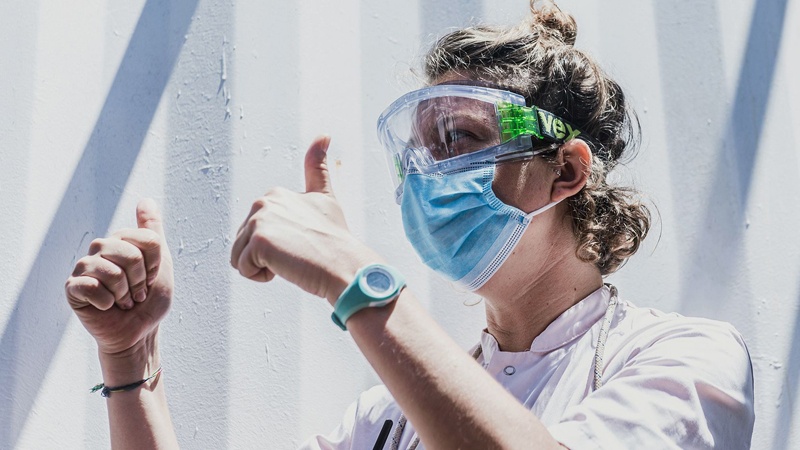
By Ben Garcia
KUWAIT: The most powerful weapon against the coronavirus is the facemask. According to WHO-backed research, wearing a facemask can reduce the spread of COVID-19 by 85 percent. The research claimed that the chance of infection or transmission is three percent with a mask compared to 17 percent without a mask.
Holger Schunemann, a professor at McMaster University, said in the statement quoted in a medical journal: "Our findings are the first to synthesize all direct information on COVID-19, SARS and MERS, and provide the currently best available evidence on the optimum use of these common and simple interventions to help 'flatten the curve'."
Wearing a facemask has become mandatory in many countries around the world. In Kuwait, those not wearing a facemask face punishment of a maximum of three months in jail or a KD 5,000 fine. When the rule was implemented in March, people started wearing masks in public places, streets, government facilities, private companies, malls and offices. Many establishments have implemented strict measures obliging all employees and individuals to wear a mask or they will not be allowed to enter their premises.
To check whether everyone is strictly adhering to Ministry of Health (MOH) guidelines, Kuwait Times went to three separate locations to observe the flow of people and how they are following these guidelines. We found out that a majority of people are wearing and adhering to the facemask policy. Out of 300 people surveyed, none of them was without a facemask. The question however is whether they are wearing it properly or not.
Kuwait Times went to Rai near Lulu Hypermarket and counted 100 people with or without a facemask. We repeated the same in both Kuwait City in Maliya near Souq Muttahida and in Salmiya in the old souq near the MRG Building, and here are the results:
Al-Rai (100:3) (at 11:30 am)
Out of 100 people, three are not wearing the facemask properly. They all have a mask - one is carrying it in his hand, while the other two have lowered it on their chin.
Kuwait City (100:9) (at 1 pm)
Out of 100 people, nine are not wearing the facemask properly. But at 1 pm, not many people are around.
Salmiya (100:16) (at 5 pm)
Out of 100 people, 16 are not wearing the facemask properly. Salmiya is a crowded area with a mix of nationalities. Five in the afternoon is considered rush hour and many are either rushing to buy something in the supermarkets or rushing home. When asked why he wasn't wearing the facemask properly, Bassam, a Syrian man, said he has health issues. "I am experiencing shortness of breath. But I am wearing it - I just wanted to breathe fresh air," he said.
Meliza, a Filipina nurse, said she regularly wears a facemask but removes when there are no people around her. "Doctors are telling us to breathe fresh air as well - they are telling us that it is also harmful to our health if we wear a mask all the time. But we need to wear it in public so we can be spared from this killer virus," she said. Sujin, an Indian national, removed his facemask because he said he is not in a crowded area. "I always have it when I am out of the house. I don't want to pay the KD 5,000 fine or be imprisoned," he said.










